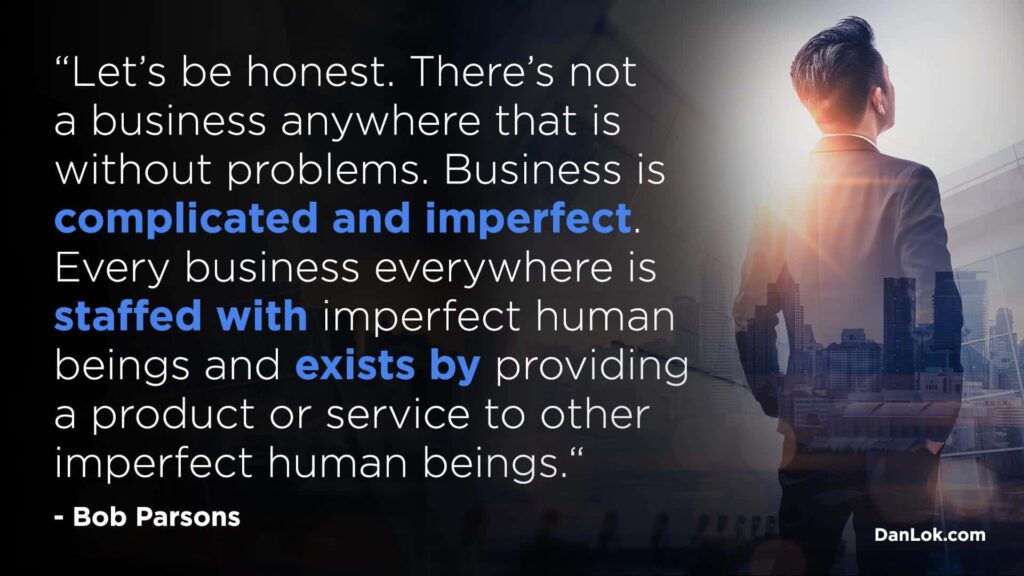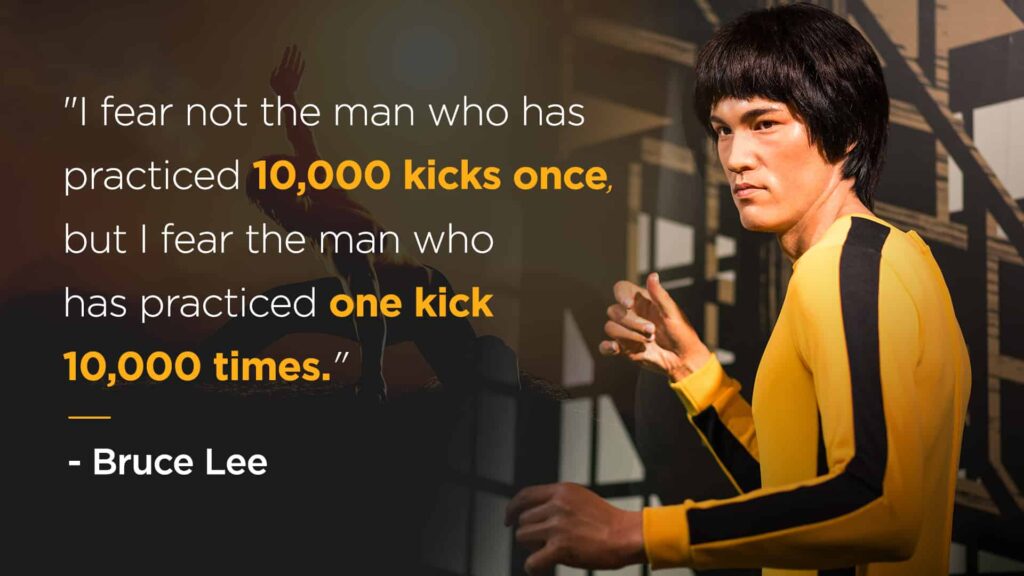Have you been making these mistakes when you’re starting a business? It can be overwhelmed in a crowded marketplace. What are the mistakes you can avoid?
Here are 10 detrimental mistakes to avoid when starting a business in a crowded marketplace
The truth is… everyone makes mistakes and it’s obvious that it’s no different for business owners.
Unless your mistakes can turn into huge advantages in your business and life – avoid it when you’re starting a business.
There are many common mistakes and it’s natural getting a little tripped up here and there. But some of these common mistakes are detrimental when you’re starting a business.
It means, it can become costly down the line.
So, it’s better to avoid them at the beginning itself.
With effective planning, you can avoid typical stumbling blocks that may potentially lead to failure.
Starting a business is not a consequence of good genes or being lucky. It can be engineered by following the right methods and strategies – it can be taught.
A crowded marketplace can be overwhelmed, and you’ll sometimes get overconfident with enthusiasm. However, enthusiasm can be both a blessing and a curse when you’re starting a business.
Why? That’s because it drives the passion for your business that can fuel your success – and financially ruin you if don’t think through your decisions.
Here’s a video I want to share with you. About what I learned and some costly mistakes you can avoid.
I’ve started and failed in 13 businesses – lost thousands and millions of dollars. If you don’t navigate those potholes. You’ll most likely won’t see success.
If I could turn back time, I’d do things differently…
10 Detrimental Mistakes To Avoid When Starting A Business
- No Goals And Commitment
- Avoid Micromanaging When Starting A Business – Delegate
- No Understanding Of Marketplace
- Not Having The Right Mindset
- Technology Ignorance Isn’t Bliss
- Starting A Business Without A Plan
- Neglect Marketing Investment
- Accidentally Create Leverage
- Spending Lavishly
- Hiring the wrong people

No Goals And Commitment
When you’re aiming in the dark – you can’t hit a target that you can’t see. You’re going to miss 99% of your target.
It’s the same with everything we do in life. Without a clear goal, you won’t have any motivation to improve your business continuously. You drift along and taking things as they come – hoping for the best.
And because you’re not putting in the time, energy and focus into growing your business, eventually it’ll fail.
When starting a business, set a clear goal and commit to making things happen. With that said, be very specific with your goals – not being a generalist.
Instead of saying “I will improve next quarter’s revenue”, say “ I will increase sales by at least 20% each month until the next quarter”.
When you be specific about where you want to go from the beginning, you’ve created a much clearer image in your mind of how to achieve your goals.
On another note, observe your motivation. Because this can lead to emotional baggage and this baggage slows us down and hinders our growth.
Not only you’re going to miss most of your target. What’s worse is you’re also stuck in this vicious cycle of emotional baggage.
Or maybe the regrets you have will demotivate you to achieve your goals.
Avoid Micromanaging When Starting A Business- Delegate
Delegating is a powerful tool when starting a business. But you must know when to spend your money before you create your high-performance team.
There’s sometimes a lack of self-awareness when starting a business. Some business owners in the early stage are not great at delegating work to their team members.
So, if you’re not good at certain things, avoid doing everything just because you want to cut costs.
Focused on your strength in specific work tasks and delegate the rest will help in the long run.
While most employees don’t appreciate being micromanaged – as a business owner, when stating a business – curb this behavior before it leads to negative effects.
Here are some pointers on how to let go:
- Reflect on your behavior. Most likely it’s because of some insecurity – if your team doesn’t perform exactly the way you wanted – you’re afraid it’ll reflect badly on you.
- Prioritize what matters and what doesn’t. Regardless of how important the task is – you can’t do that if you want to control everything. Avoid being a control freak. Create a To-Do list and start determining what work is critical and delegate those that are less important. For example, strategic planning vs presentation.
- Talk to your team. Once you’ve determined the importance – the next step is communication. Have a conversation with your team about what really matters to you and how you want to be kept in the loop.
- Built trust. Have a pep talk with your team members. Because they’re used to you not trusting them, they might come to you for approval on each and every project. So, give your team members the psychological power to lead. Show them you trust and have faith in their abilities.

No Understanding Of Marketplace
Most Entrepreneurs are an expert in their own product or services. When we talk about the marketplace – it can be billions and billions of people but with your product – will the majority pay for your product or service?
Exactly – NO! Not everyone will pay. So how exactly can you understand the marketplace or at least understand your market?
That means If you have a certain product or service, where and what types of customers will pay for it.
When you understand your marketplace or customers – not only it’ll increase your sales, but also increase your chances of attracting the kind of customers you want Share on XDo you see what I mean?
And sometimes, you come out with a new product or service. With that said, testing your product is critical to your success or failure – your product-market fit can be tested in small ways.
Why do you need to test it?
Because a product that works for you may not work for others.
So, by testing it in smaller ways can help you save time and money. At the same time, you are generating feedback and answers to your growth success.
Only then, you will understand your marketplace and customers better.
Maybe you need to modify and fine-tune your product according to your feedback…
Or perhaps, you need to remove some funky and complicated product or service that initially you thought it was cool to combine – but not in the eyes of the marketplace.
So, when starting a business… and to avoid these detrimental mistakes.
You need to make sure what works best for your clients. And this is one of the main factors most online entrepreneur/s fail to succeed
Watch this video on how to choose your niche and target market.
Not Having The Right Mindset
Do you have confidence in yourself? Or confidence in your product or service…
Don’t expect customers to show up at your doorstep or website to buy from you.
You need to put yourself out there by branding your business, marketing your offers and networking.
I know many brilliant business owners with exceptional product or service – but lacking in confidence.
You see, starting a business is no easy task…
You need to have the right mindset even before you start a business. If you’re lacking confidence, you need to learn how to be more confident.
So, what do I mean by not having the right mindset?
Is it the level of confidence or having a combination of mindset which includes leveraging your money mindset to create more money?
When we portray confidence in anything we do... that’s a positive mindset Share on XIt’ll constantly motivate you towards success. And leveraging money mindset is like, instead of having a saving mindset and trying to salvage every dollar – focus on making more money with your money.
Now, does that make sense?
When you’re starting a business, think of how you can use your mind to create wealth – use the money you currently have to help you generate more money.
With that said… doesn’t mean that you need to spend every single penny on marketing or product development.
Plan according to your goals and commitment and then take massive action Share on XDevelop a millionaire’s mindset and be a “Doer” instead of a “Talker”. Most unsuccessful people like to talk about things and tend to have a lot of opinions.
They dwell and complain about their struggles and problems.
So, if you’re reading this article right now…
I know you are a “Doer”. You want to avoid mistakes when starting a business.
You want to achieve your goals and generate results.

Technology Ignorance Isn’t Bliss
The digital landscape is rapidly growing and constantly evolving. As a business owner, if you don’t leverage the current technology in your business, you’re considered as laid back.
If you’re a young entrepreneur just starting a business…
Here’s a question you might be asking; How can I use technology in my business?
Simple!
I spoke about micromanagement earlier, about delegating certain things and avoid doing everything by yourself.
You see, tasks like data entry, posting updates and generating leads on your website can be delegated and those are all the things that can be done with technology.
It’ll save you hours on trivial tasks if you know how to leverage it. This useful tool gives you the time and freedom to attend to more important matters in your business.
If you don’t want your competitors to run you out of business – find the time to learn how to leverage technology Share on XNow, this is where the mindset comes in…
If you’ve been a stubborn business owner and refuse to learn, you’ll most likely lose out to your competitors and more likely to see failure instead of success.
Don’t adopt the old school traditional mindset, it’s one of the deadliest mistakes business owners make – especially if you’re starting a business.
Starting A Business Without A Plan
A business plan is your roadmap to success!
Although it could evolve as you go along. But when you’re starting a business – a proper business plan leads you on the course with a structured approach.
You can document your business thoughts and ideas you want and need to accomplish. And then, formulate a strategy and tactics for how you plan to get there.
Successful Start-up entrepreneurs are often those who have strategies in placed to deal with challenges as they occur Share on XWhile being flexible and adaptable to the changes in today’s marketplace – you can’t sidestep planning if want to succeed.
While the mindset plays the biggest role in our life – exercising self-control to avoid these mistakes when starting a business – doesn’t mean you need to re-consider your whole idea of having your own business.
The thing about having your own business is, it requires both patience and passion.
This may sound troublesome to some business owners. But my point is…
If you could avoid these detrimental mistakes with proven strategies, wouldn’t you make use of that opportunity?

Neglect Marketing Investment
If you have a mindset of, “I’m already doing well, I don’t need to invest in any marketing” but you expect to increase your revenue…
You’re most likely won’t be successful forever.
Most business owners who are already successful have this mindset.
You see, the thing is…
You’re going to slowly lag if you’re aren’t bringing in new business – especially from today’s competitive marketplace.
In one of my recent articles, I spoke about “The Future Of Marketing Automation” and in one of the sections in that article, customers want a more satisfying journey when they are searching for a particular product or service.
To survive and thrive in the future of marketing – you don’t want to neglect marketing investment when you’re starting a business Share on XOn top of that, people are talking about customer experience (CX). Research from PWC said, 86% of buyers are willing to pay more for GREATER customer experience.
So, if you neglect your marketing investment – you’re likely to lose out a lot.
Now, as you already know, in this new decade, we’re all moving towards “Digital”. And with all the variety of technology tools available, you can always start with some free marketing tools to help you grow.
By doing that, you can maximize your return on investment (ROI).
So, don’t neglect it – thinking you’re already successful and don’t need any investment in your marketing.

Accidentally Create Leverage
Who owns your company’s intellectual property (IP)? This includes the brand name, designs, domains, and technology. Ensuring vital IP owned by the company is critical.
Because, in the event of a dispute between two partners, and If one partner owns the domain names personally – this means he or she has not assigned the right to any intellectual property.
Now, what does this mean when someone has not assigned any IP rights?
It means, they can leverage in any negotiation.
Here’s the thing I don’t want you to miss…
When registering domain names and assets in the name of the company – it’s straightforward.
But… when it comes to Intellectual creation, you need to understand the most important point.
For example, when an employee of your company creates a logo, it means, it’s owned and assigned by the company.
However, if it’s being created by a freelancer – it needs to be assigned in writing.
Now, you don’t actually need to engage a lawyer to do this. There are plenty of standard intellectual property documents online where you can get your team to prepare.
This might be one of the biggest mistakes for young entrepreneurs.
That’s why it’s crucial to know what are the mistakes to avoid when starting a business.
Spending Lavishly
Your first-quarter sales were good – business is going well. Second-quarter was even better and now you have some extra cash to splurge.
Typically, most of us would make a few purchases to help with future scaling.
Investing in new software, doubling your ad spend, redesigned a new company logo, or maybe a small renovation for the office.
What happens if the following month, your projected revenue isn’t as much as what you’d expect?
All of a sudden – you find yourself in debt.
You’ve spent too much money too soon on unnecessary things. And these things can turn your business profits into additional business expenses.
On top of that, you are not in a position to utilize them yet.
So, before you spend lavishly on unnecessary things, ask yourself this: “ Is this important and going to be used immediately to grow your business?”
And by asking yourself certain questions, not only it helps you avoid crucial mistakes, but to also make a decision to achieve your goals faster.

Hiring The Wrong People
Hiring the wrong people is like having a bad team. If you select the wrong people to be on board, not only you’ve made a mistake. But also closer to failure than you know it.
When you have the wrong people on your team, it harms your business reputation Share on XBefore you hire anyone – think about what that person is like. If it’s possible, find out about their goals, beliefs, and mindset. This is crucial because it has to be aligned with your vision and mission.
Let’s take a salesperson for an example. Many companies hire salespeople because they want to generate more revenue. However, a salesperson, they only look at their own income and sales quota.
They don’t care about things like integrity and morals…
With that said, at the beginning of their career, they might bring in more sales but subsequent months, their sales get lower and lower.
This is because most salespeople are not properly trained. Instead of building a long-term relationship with your customers – they resort to being a slimy salesperson with pushy tactics.
As a result, you’ll only get a “one-time purchase” from your customers. What’s worse?
You spend years generating and nurturing leads…
And because you hire the wrong people, your customers lose trust in the company and they go to your competitors.
So, to see success faster, create a high-performance team that’s aligned with your goals.

Want To Scale Your Coaching Business?
So, is it time to scale your business? – Especially for coaches and consultants.
As your business grows – knowing when to hire, when to automate the tedious process, strategizing techniques and tactics effectively is crucial when starting a business.
I said this in the beginning – you can avoid typical stumbling blocks that may potentially lead to failure.
I’ve started and failed 13 businesses – I have seen startup companies moving too fast without proper planning and crumbled before they can achieve their goals…
The thing is, all this can be avoided.
Why would you create a new success strategy when there are already several proven strategies?
Discover the method and strategies that you can use to scale your coaching business online.
You see, I knew little to nothing about starting a business. This was when I was younger. I was heavily in debt and failed 13 businesses.
 Today, you can discover the method I used to scale my coaching business from zero to $1,000,000 a month in less than 8 months…
Today, you can discover the method I used to scale my coaching business from zero to $1,000,000 a month in less than 8 months…
Now you must be thinking what did I do to achieve that?
Well, it’s by doing the opposite of every other coach! Get your resources here and maximize your “Personal Media Platform”.
Call To Action
If you want to avoid these mistakes, subscribe to my private mailing list and get your personal copy of videos and guide on how you can use our system and strategies to grow your coaching business too. You’ll also get my free eBook and you’ll never miss any valuable life hacks.














